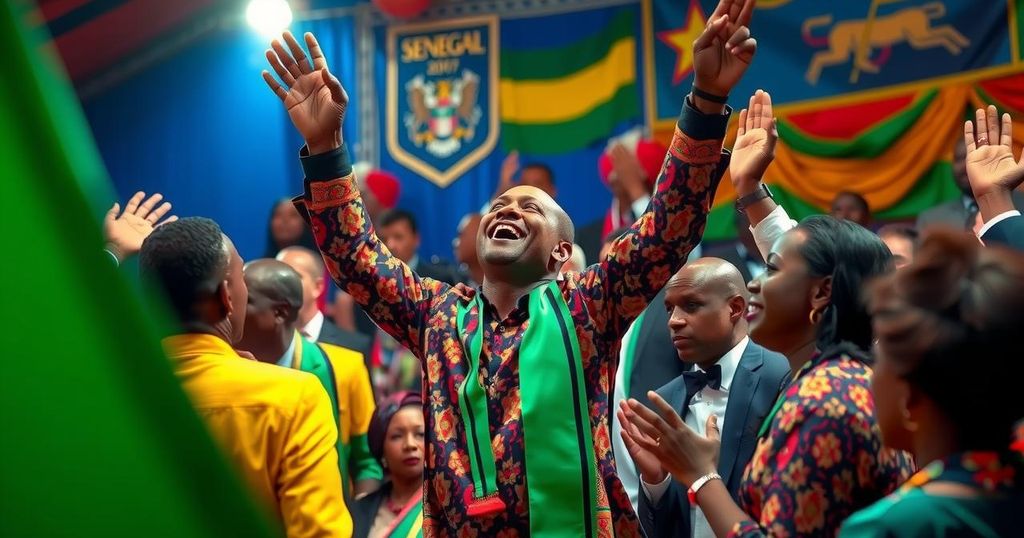Senegal’s ruling party Pastef has claimed a large victory in the legislative elections, granting President Bassirou Diomaye Faye a potential mandate for reform. Key opposition figures conceded defeat, and while the elections were largely peaceful, allegations of electoral fraud emerged from former President Macky Sall. Results are pending, but the outcome poses substantial implications for governance and economic challenges in Senegal.
Senegal’s government announced a significant victory in the recent parliamentary elections, asserting that the ruling party, Pastef, has secured a substantial majority. This outcome is expected to provide President Bassirou Diomaye Faye with a robust mandate to push forward with his ambitious economic and social reforms established during his election in March. Key opposition figures, including former Prime Minister Amadou Ba and Dakar’s Mayor Barthelemy Dias, conceded defeat as the vote counting progressed, with official results anticipated shortly thereafter. The elections were conducted peacefully nationwide, although minor confrontations among party supporters were reported prior to the voting. Government spokesman Amadou Moustapha Ndieck Sarre expressed gratitude to the Senegalese populace, stating, “We are proud of the Senegalese people and we would like to thank them for the large victory that it has given to Pastef.” However, Pastef has not disclosed the exact number of seats it has won; to gain a majority within the 165-seat National Assembly, the party requires a total of 83 seats. The newly elected government faces the challenge of enacting reforms in a parliament that previously leaned towards opposition. Notably, Prime Minister Ousmane Sonko, who had previously been barred from presidential candidacy, was appointed by President Faye to spearhead these efforts. Together, they campaigned on a platform centered around Afrocentrism and nationalism, seeking to redefine Senegal’s historical ties to France, the nation’s former colonial authority. Faye, now Africa’s youngest elected leader at age 44, focused his campaign on promises encompassing economic reform, social justice, and anti-corruption measures targeted particularly at appealing to the youth. Despite these optimistic undertones, the government may encounter substantial hurdles, including high unemployment rates and volatile public finances. Furthermore, former President Macky Sall, who leads opposition factions from abroad, has accused Pastef of perpetrating “massive electoral fraud,” although specifics of these allegations have yet to be substantiated. The unfolding political landscape in Senegal remains closely watched as the nation anticipates official results and the eventual implications for its governance. Official results of the legislative elections are eagerly awaited, with the potential for transformative changes in Senegal’s political framework. The focus now shifts to how President Faye and his cabinet will address economic challenges while fulfilling their mandate of reform, a responsibility that will likely define their term in office.
The recent legislative elections in Senegal have generated significant political discourse as the newly elected government of Pastef seeks to implement a radical agenda of economic and social reform. With President Bassirou Diomaye Faye at the helm, this election represents a pivotal moment for the young leader, who aims to reshape the political landscape following previous struggles with an opposition-dominated parliament. This context is further complicated by allegations of electoral fraud from former opposition leaders, underscoring the tension inherent in Senegal’s current political climate.
In conclusion, the Senegalese legislative elections mark a critical juncture for the ruling party Pastef, led by President Bassirou Diomaye Faye. The anticipated results could enable the government to pursue a radical reform agenda as it navigates through various socio-economic challenges. While victory has been claimed, the political equilibrium remains precarious, with allegations of fraud and potential opposition actions likely influencing the future governance of Senegal.
Original Source: www.bbc.com






